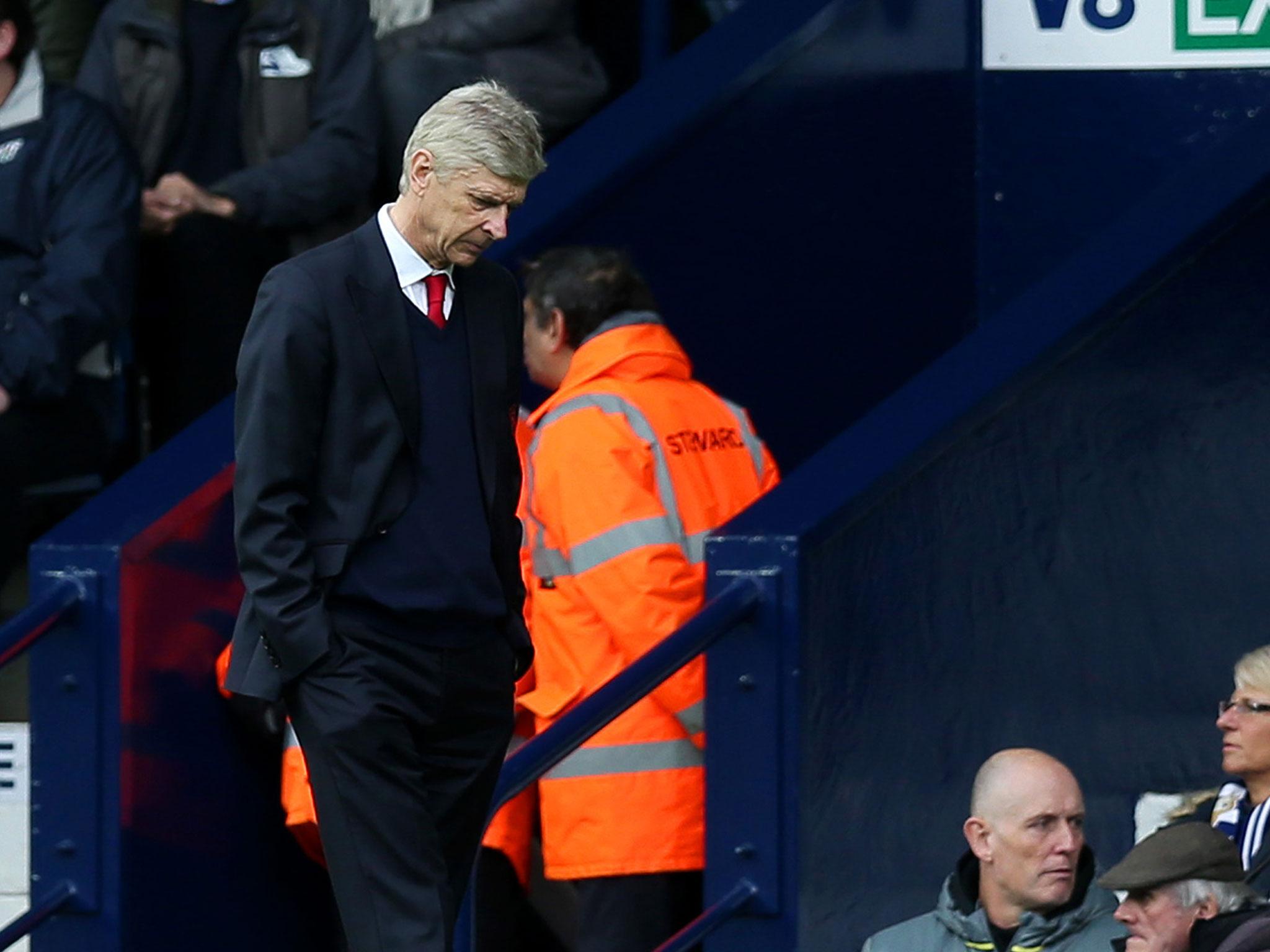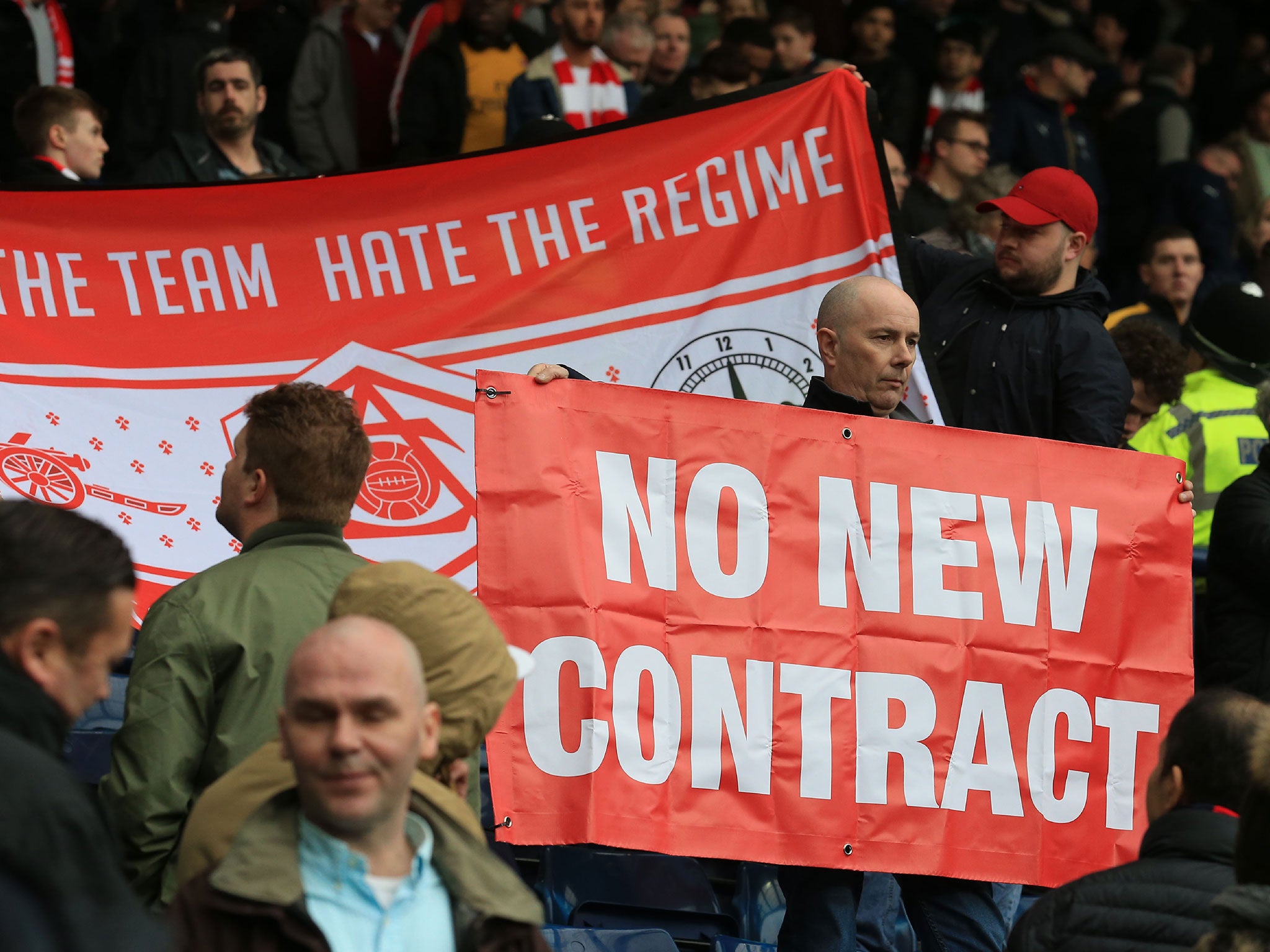What is Arsene Wenger thinking? The psychology behind the Arsenal boss' biggest decision of his career
How does Wenger begin to weigh up divorcing himself from such a prominent part of his life after so long? The Independent spoke to a leading sport psychologist to find out

Your support helps us to tell the story
From reproductive rights to climate change to Big Tech, The Independent is on the ground when the story is developing. Whether it's investigating the financials of Elon Musk's pro-Trump PAC or producing our latest documentary, 'The A Word', which shines a light on the American women fighting for reproductive rights, we know how important it is to parse out the facts from the messaging.
At such a critical moment in US history, we need reporters on the ground. Your donation allows us to keep sending journalists to speak to both sides of the story.
The Independent is trusted by Americans across the entire political spectrum. And unlike many other quality news outlets, we choose not to lock Americans out of our reporting and analysis with paywalls. We believe quality journalism should be available to everyone, paid for by those who can afford it.
Your support makes all the difference.As we enter the tedious monotony of an international break, Arsene Wenger finds himself with around 10 days of wrestling with the biggest decision of his career.
There have been protests, marches and planes flown overhead against his continued leadership of Arsenal with the general feeling of Gooners being ‘thanks, but no thanks’. Or at least the more outspoken ones.
The board have given him until the Manchester City match a week on Sunday to decide whether he will sign the two-year contract extension already put in front of him, or whether to walk away from the club he has plunged the last 20 years of his life into. It’s hardly a decision to be taken lightly, or quickly.
Wenger told reporters following the 3-1 defeat to West Brom on Saturday “you will soon know” of his decision, but it is understood that he is no closer to making that decision and changes his mind daily about what he will do.
But how do you begin to weigh up the option of divorcing such a prominent part of your life for so long? The Independent spoke to Professor Andrew Lane, a leading sport psychologist from the University of Wolverhampton, on why someone with the personality of Wenger will likely react by digging his heels in, rather than bow to fan pressure.
“Will this abuse affect him? Yes, if he took it seriously, but if he did, he would not be a football manager given how much criticism managers take,” Professor Lane told The Independent. “He will accept fans are unhappy – that’s not new, it won’t affect him. Players complaining? That’s part and parcel of the game, it goes with the territory.
“The current level of abuse is something that he won’t want to go out on. Given his personality he is more likely to dig in and have a final good season and then leave on his own terms rather than feel he left when things are not going so well, given his investment in every part of that club and its players. He’s spent 20 years building things up and he won’t want to just dismantle it on the back of losing four or five games.”
To make it as at the top of your profession, you need a skin as thick as buffalo hide and an ego – or air of confidence in yourself – to match. Wenger has both, which is why he has lasted so long in a sport eating itself because its craving for instant, short-term success.

However, while this makes him the great survivor, it also makes him more reluctant and pig-headed when it comes to moments such as this, when change is so clearly what Arsenal need. But Wenger still believes there is no one walking this Earth who can do a better job than he can at the club.
“He thinks he’s the best person for the job,” Professor Lane explained. “It’s such a demanding job that you have to believe that what you are doing is beneficial.
“His ego is far greater than those compared to a normal job but being a football manager is so demanding that you need the strength of an elephant so it doesn’t break you. He’s so heavily criticised so often in a job that you can be so easily fired from that he has developed this backbone of steel and that’s why he still thinks he’s the best man for the job.”
Another fear of Wenger’s is what his life will be without Arsenal. He has a routine – he’s had it for 20 years – and at 67 years old, change is coming too late for him. He wants to see out his career at the Emirates and likely feels that moving to another club after investing so much of himself at Arsenal, is not an option.
“His life revolves around football; I don’t think he sees himself taking any other role,” Professor Lane added.
“In anyone’s mind it is a challenge to do the same job year in year out. But he’s not doing the same job, it’s evolved. And that’s a reason why he would stay – it’s a changing job but he has a lot of control over how it changes. That’s a massive advantage in football.
“He’s got a great deal of influence in the club and an awful lot of ‘him’ invested into it. He’s committed a lot to the club and he’s not doing it just for the money, he’s doing it for his own kudos.”
What is evident though, is that he is struggling to motivate his players, as shown by the Alexis Sanchez’s angry standoffs with teammates and he and Mesut Ozil stalling on new contracts. While he needs to freshen up his ways of challenging his players, his motivation hasn’t wavered, which is why he will stay on, believes Professor Lane.
“The team is visibly unmotivated for games at the moment, but I’m sure he is still motivated to have a very good team.
“Whether he’s motivated for the potential rewards that are coming in terms of where the team is heading is a big factor in his decision. He will also look at his long-term ambition in terms of this season and beyond and where he sees his career going and whether he needs that. He will decide he doesn’t need this motivation anymore and he will realise it one day – like Sir Alex Ferguson did.”

Wenger has controlled, for the most part, how Arsenal Football Club as grown over the last 20 years, from moving to a new stadium, to offsetting costs with player transfers, to bringing through younger stars. He’s been the puppet master of the club.
And if you’ve had this much control for that long, people trying to make a decision about your exit for you, like the fans are, isn’t going to work. Wenger wants to decide when he will leave football, rather than let football decide when it leaves him. All the signs point to him staying.
Join our commenting forum
Join thought-provoking conversations, follow other Independent readers and see their replies
Comments